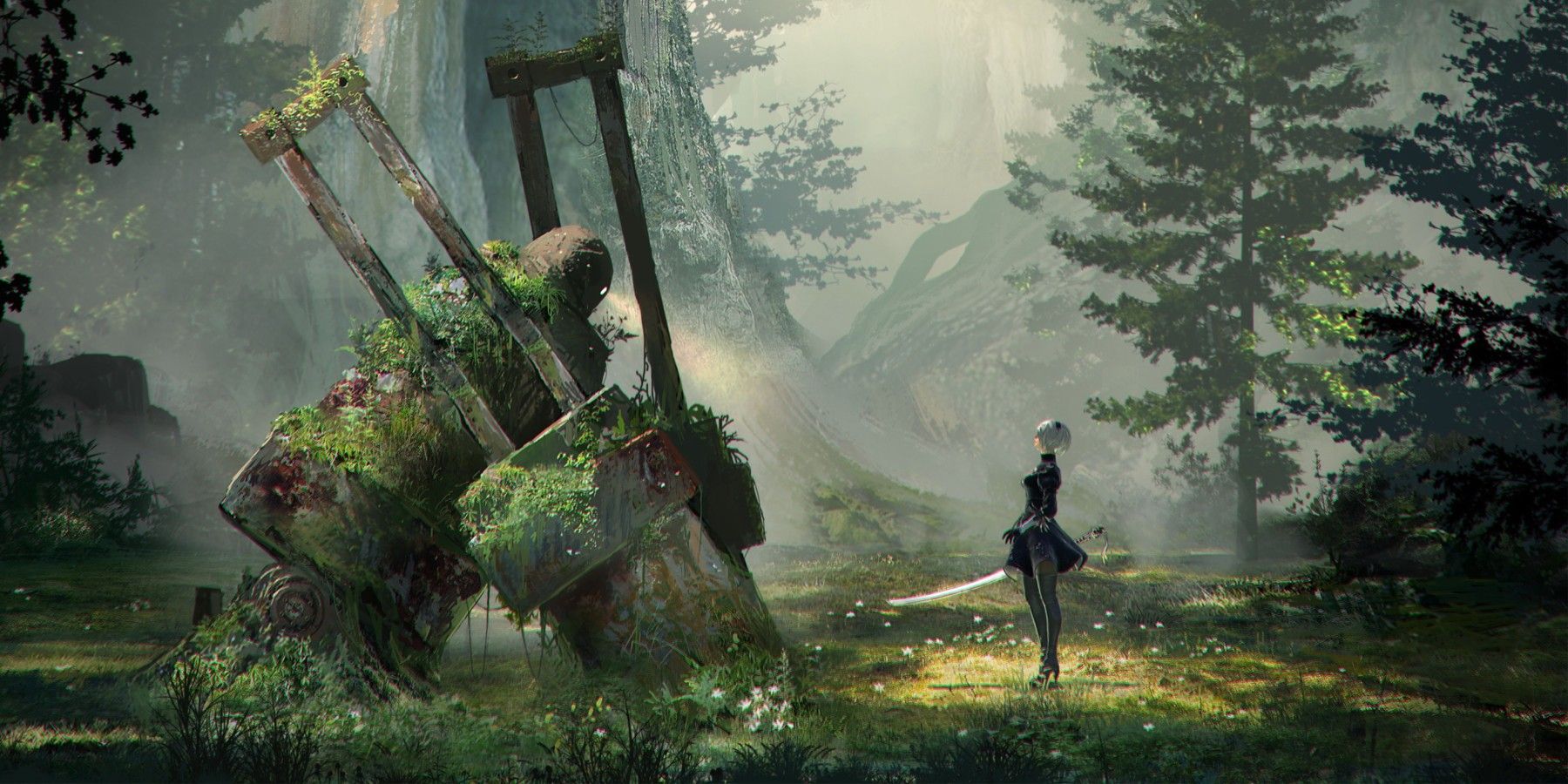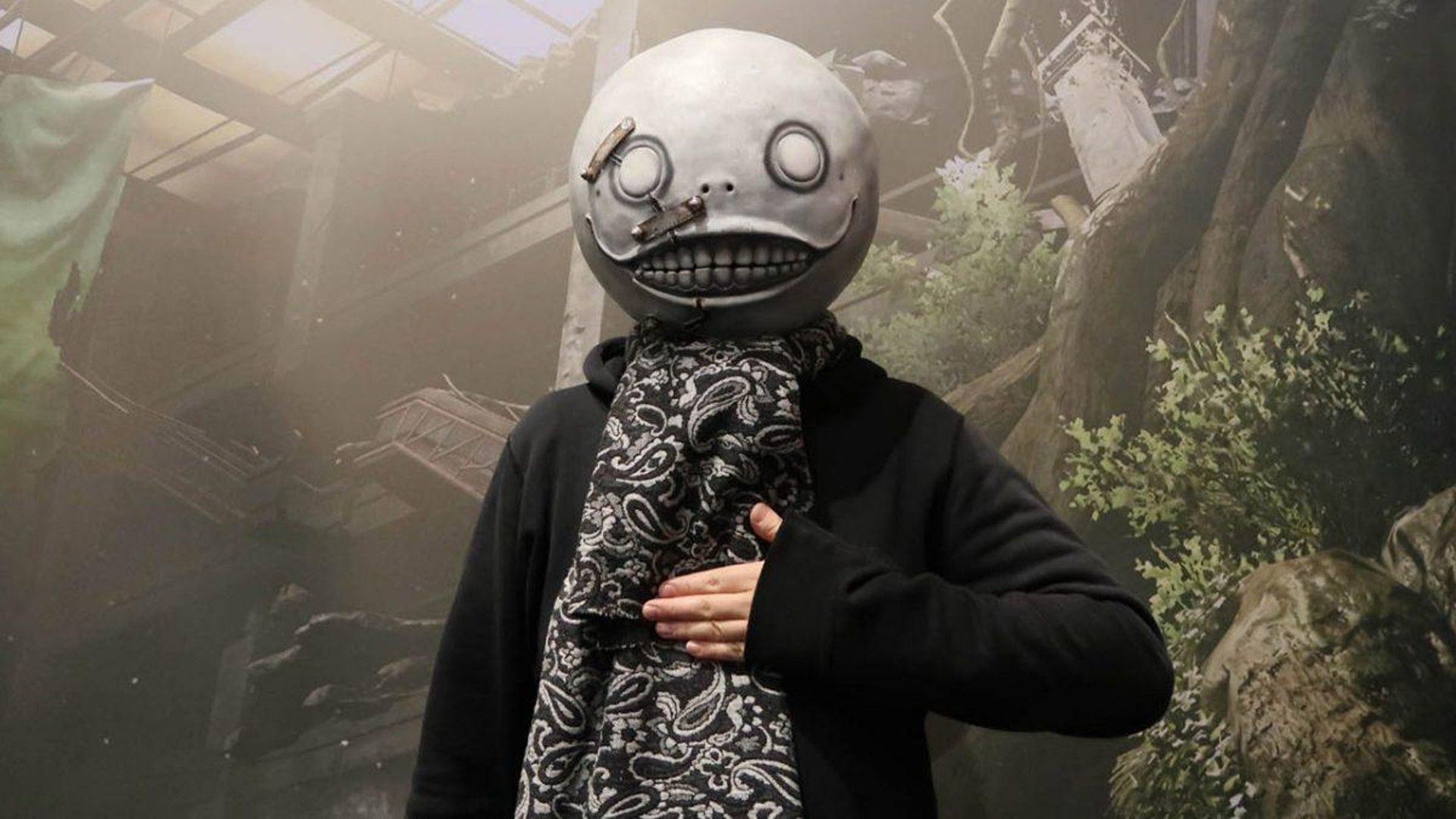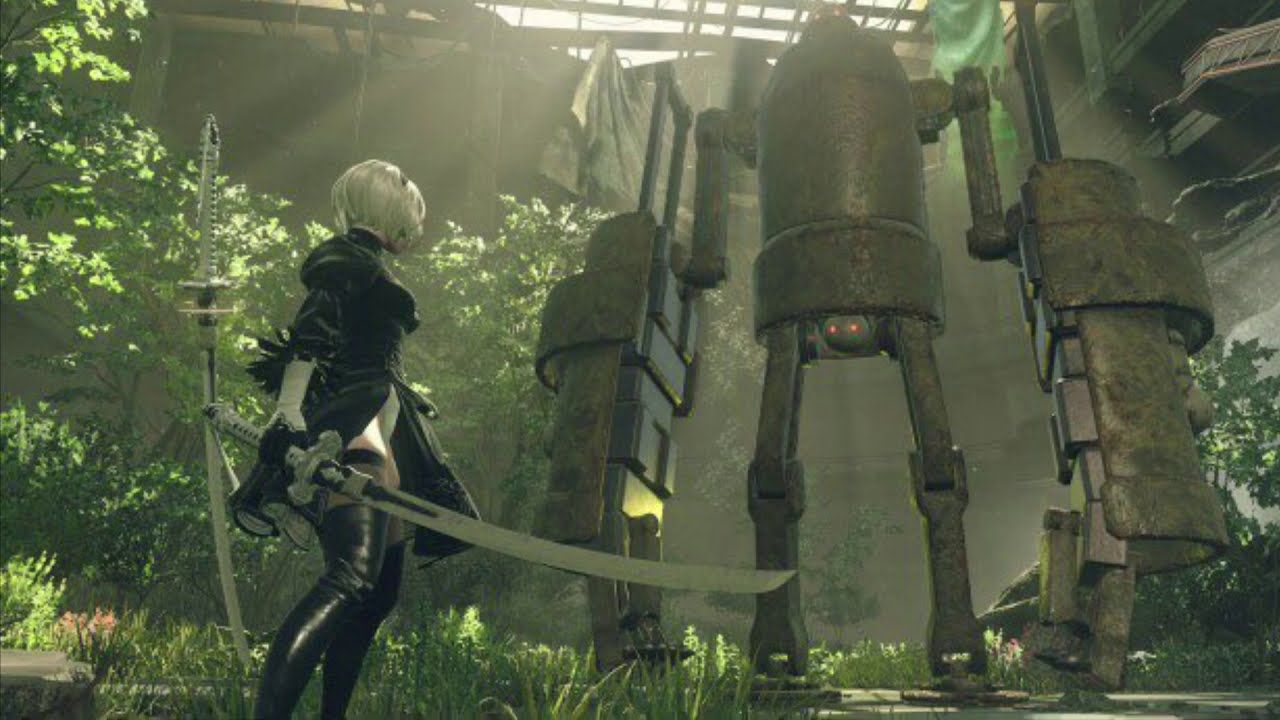In 2010, Square Enix released NieR, an action RPG led by auteur game designer Yoko Taro. It focused on a man trying to find a cure for his daughter's sickness in a vicious world of pain and turmoil. At least, this was the version that released in the west. Nobody could have expected that seven years after its release, this game would receive a sequel that has gone on to be regarded as one of the most groundbreaking action RPGs ever made, NieR: Automata.
Released on the PlayStation 4 in Japan on February 23rd 2017, today the second entry in the NieR series, which is part of the larger Drakengard franchise, celebrates its fifth anniversary. Despite its incredibly tough competition in its genre within the year of its release and the years to follow, many still see it as a defining action RPG and a defining moment for video game storytelling. Here is why NieR: Automata is still groundbreaking, even five years later.
NieR: Automata's Origins
The last thing that many who played the original NieR expected was for not only the game to be a sequel, but for its sequel to be developed by none other than Bayonetta and Metal Gear Rising developer Platinum Games. This collaboration that led to the creation of NieR: Automata surprisingly came from Platinum itself, as director Yoko Taro and series producer Yosuke Saito approached the developer with the intention of developing the sequel, and the action game developer eagerly agreed since its team enjoyed the original game upon its release.
This change in developer from Cavia, the original NieR's team based in Tokyo, to Platinum, based in Osaka, required Taro to move. This affected the game's development, as his position as a freelance director made it hard for the two teams to align their schedules. After originally planning for the game to be for mobile platforms and even the PlayStation Vita at one point, the team eventually settled to develop the game for PlayStation 4 and began development on NieR: Automata in 2014.
Taro led writing duties on Automata much like he had on previous NieR and Drakengard games, however this time he would end up writing much more than on his previous projects, dedicating himself to the game's central theme of "agaku." This is a Japanese term used to express making the best out of a bad situation, and apparently Taro was inspired by a Coca-Cola commercial depicting two people from India and Pakistan sharing a drink through live-streamed video feeds for the game's now iconic ending.
NieR: Automata's Storytelling
What really set NieR: Automata apart when it released in 2017 was the game's unorthodox approach to storytelling through video games. Much like the original, NieR: Automata is separated into multiple campaigns, all of which are distinguished by their different endings. 2B's story ends with ending A, 9S's story is ending B, etc. While this is nothing worth noting in its own right, as Sonic Adventure had multiple character stories in 1998, the fact that each ending is represented as the definitive end to a character's story and often times ends with the character's death surprised many first-time NieR fans. It also came as a shock when fans started a new game just to realize they had only experienced a small portion of the overall story.
Yoko Taro has never been a stranger to injecting his stories with a dose of philosophy, and NieR: Automata is clearly where the writer went the furthest, with many of the game's androids referencing philosophers such as Pascal, one of the most important characters in the game who is a reference to French writer Blaise Pascal. Pascal embodies one of the most memorable storylines in the game, being a machine who leads a faction of pacifists. At one point he teams up with A2 for a mission, and upon returning to his camp, he learns that in teaching the children of his faction of neutrality and pacifism. He has also taught them fear, which overcomes them in their final moments as they are all murdered after being attacked by hostile machines. After this, Pascal asks the player to either delete his memories or kill him, being unable to live with what he has done.
This is just one of the many examples of the references to philosophy, history, and religion that make NieR: Automata's story a timeless narrative of the search for meaning in existence and the beauty of life, all of which culminates one of the most beautiful endings of all time and a true testament to the power of video games as a storytelling medium. When it comes to JRPG stories, NieR: Automata is genuinely a cut above the rest. It has a lot to learn from in terms of blending a deep and engaging narrative with meaningful gameplay mechanics and choices.
NieR: Automata's Gameplay
There's an understandably high level of expectation to be found when Platinum Games in involved with any project, and thankfully NieR: Automata might just be the developer's finest work. The game offers some of the most deep combat design Platinum has ever created, spread across its three characters in the form of 2B, 9S, and A2, with all three feeling distinct. While 2B and A2 offer the satisfying hack and slash action Platinum is known for, 9S's hacking focuses on the return of Yoko Taro's infamous bullet-hell sections.
NieR: Automata raises the stakes on Taro's infamous blending of arcade action with refined third-person combat, introducing top-down shoot-em-up challenges that blend seamlessly from the hack and slash sequences. This not only creates an incredible sense of scale, with the game's opening tasking 2B to take down a larger than life machine, but also a distinctly polished balancing of satisfying gameplay with cinematic ambition that many action games today could still take cues from.
NieR: Automata is still one of the most fulfilling and exciting experiences in the entire RPG genre, and is arguably one of the best video games that the medium has to offer. It is a groundbreaking blend of strong, introspective narrative tackling broad ideologies and subject matter with intense and endlessly satisfying gameplay. Nowadays, the game can often be purchased on sale for PlayStation 4 and PC, with its PC port just recently receiving many quality of life improvements. It can even be played on an Xbox console or PC via Game Pass, ensuring that many gamers can experience the incredible title.
NieR: Automata is available now on PC, PlayStation 4, and Xbox One.



